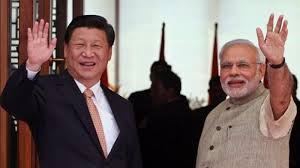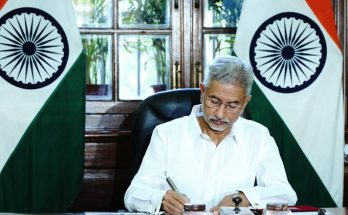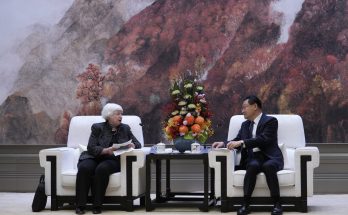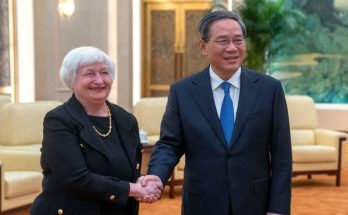 Diplomacy has prevailed over hysteria and war-mongering as India and China have agreed to an “expeditious” mutual withdrawal of troops at the Doklam plateau on the Sikkim border, ending an over two month standoff that was threatening to escalate into a military conflict.
Diplomacy has prevailed over hysteria and war-mongering as India and China have agreed to an “expeditious” mutual withdrawal of troops at the Doklam plateau on the Sikkim border, ending an over two month standoff that was threatening to escalate into a military conflict.
The resolution of the Doklam standoff has set a positive tone for India’s Prime Minister Narendra Modi’s visit to China to attend the 9th BRICS summit in the coastal city of Xiamen on September 3-5. Going forward, one can expect a constructive bilateral meeting between Mr Modi and Chinese President Xi Jinping on the sidelines of the BRICS summit which could map the way ahead for shaping a positive narrative of India-China relations.
“…expeditious disengagement of border personnel at the face-off site at Doklam has been agreed to and is on-going,” said India’s external affairs ministry in a terse statement on August 28.
Triumph of Diplomacy
Amid relentless belligerent posturing from China’s powerful state-controlled media and stern statements from Beijing’s official establishment, diplomats from India and China were quietly engaged to defuse the worst crisis to stalk India-China relations in recent decades. It looks like diplomacy and better sense has prevailed over war-mongering and sustained psychological propaganda.
“In recent weeks, India and China have maintained diplomatic communication in respect of the incident at Doklam. During these communications, we were able to express our views and convey our concerns and interests,” said the external affairs ministry in New Delhi.
India has stressed that soldiers of both countries were withdrawing their troops. China, which has claimed Doklam as part of its territory, however, said its troops would continue to patrol the region.
Mind Games
It’s not quite clear yet what give-and-take took place between the two sides before they agreed on an expeditious withdrawal of troops. From the day one, India has been insisting on diplomacy to resolve the Doklam crisis. In the face of sustained propaganda blitz from Beijing, India refused to blink in this mind game, and responded with calm and restraint in face of provocative statements.
The Way Ahead: Modi-Xi meeting
This is, however, not a time for grandstanding as both India and China will emerge as winners if they are able to seize the Dolkam crisis as a precursor for initiating a sustained and multi-layered dialogue to take a long-view of their relationship to resolve other contentious issues that have clouded their relationship in recent years. In this regard, the Modi-Xi meeting in Xiamen will show the way forward for building a largely harmonious and cooperative relationship, without glossing over difficult issues that will continue to shadow this challenging relationship between the two Asian giants.
Author Profile

- Manish Chand is Founder-CEO and Editor-in-Chief of India Writes Network (www.indiawrites.org) and India and World, a pioneering magazine focused on international affairs. He is CEO/Director of TGII Media Private Limited, an India-based media, publishing, research and consultancy company.
Latest entries
 India and the WorldJuly 9, 2024Defying West, India sets $100 billion trade target with Russia
India and the WorldJuly 9, 2024Defying West, India sets $100 billion trade target with Russia India and the WorldJuly 5, 2024India at SCO: Takes swipe at Pakistan for cross-border terror, pushes alternative to BRI
India and the WorldJuly 5, 2024India at SCO: Takes swipe at Pakistan for cross-border terror, pushes alternative to BRI India and the WorldJune 14, 2024Modi’s Day 1 in Italy: Bonding with Britain, France
India and the WorldJune 14, 2024Modi’s Day 1 in Italy: Bonding with Britain, France India and the WorldJune 13, 2024G7 summit in Italy: Modi to showcase India as leader of Global South
India and the WorldJune 13, 2024G7 summit in Italy: Modi to showcase India as leader of Global South






